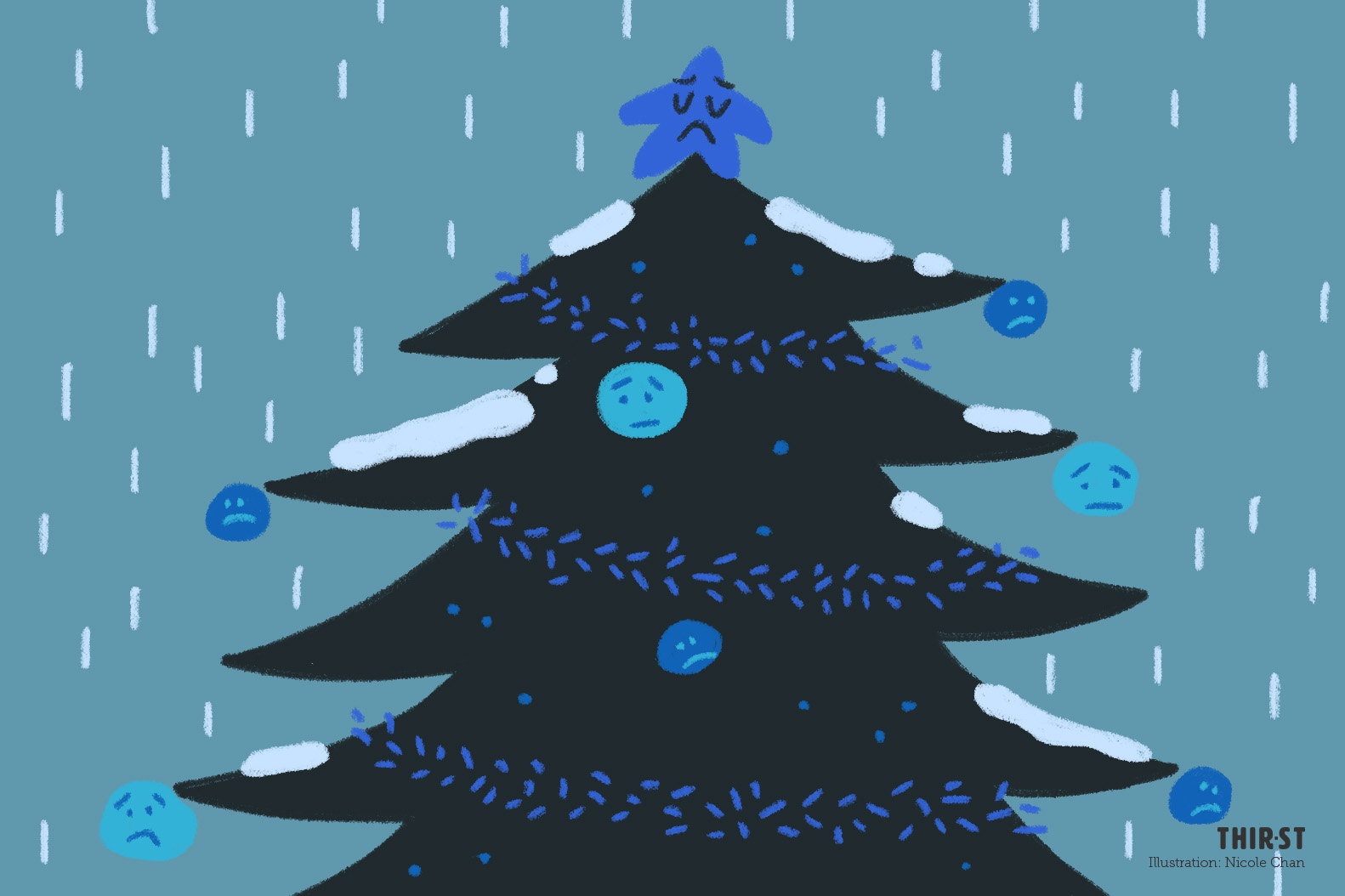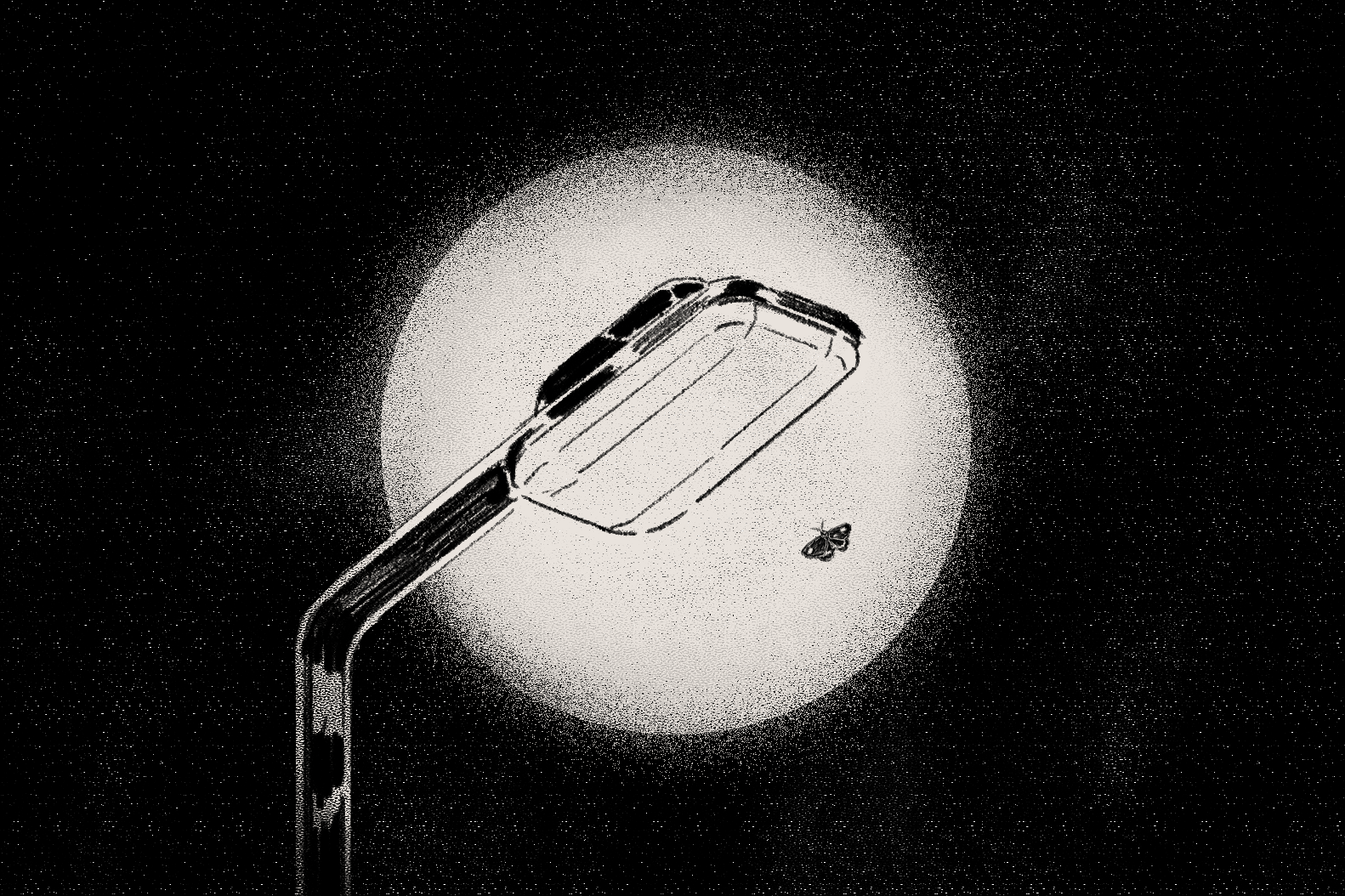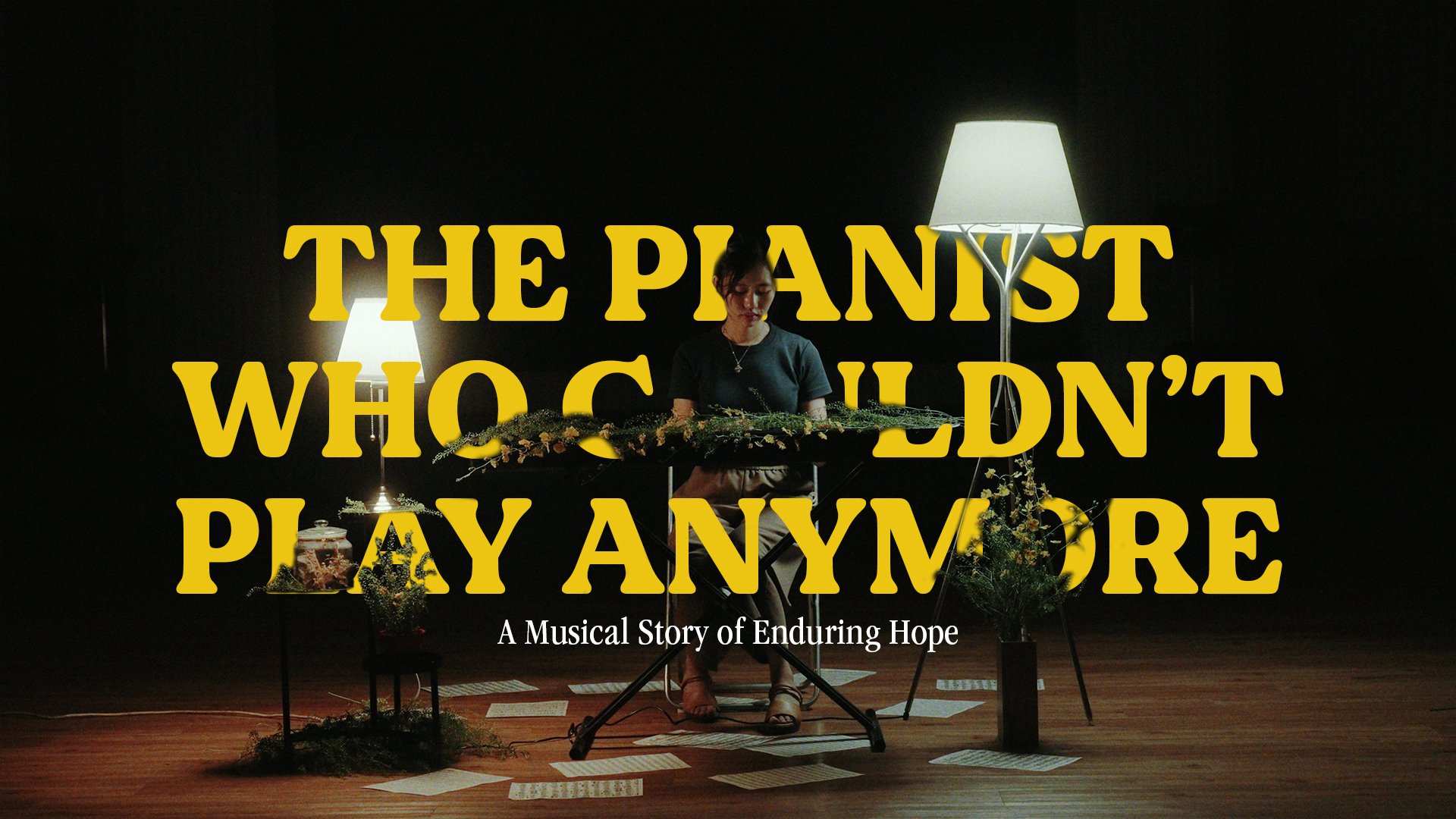Seasonal depression, also known as seasonal affective disorder (SAD), is real.
It’s the most wonderful time of the year
There’ll be much mistletoeing
And hearts will be glowing
When loved ones are near
It’s the most wonderful time of the year
Some of us might not be able to resist singing along to this familiar Christmas tune, but the reality can feel like quite the opposite for others.
In Singapore, it’s probably less to do with dark winter days – although the stormy weather and flu season can certainly cloud our thoughts and mess with our moods.
As the year comes to a close, most of us are just exhausted. We look back at the last 12 months, and the list of unmet resolutions, unfulfilled dreams and unwise choices seems overwhelming. Perhaps we feel even worse when the year ahead fills us with anxiety.
For many, this is also the peak period for church activity, e.g. camps and retreats, outreach events, cell group gatherings. We’re surrounded by tons of people and parties that we rush to buy presents for, but all these don’t always make us feel happy.
In this season of merry-making, we might feel anything but merry. Yet as Christians, we pile pressure on ourselves to have it all together.
What if… it’s perfectly okay not to be okay?
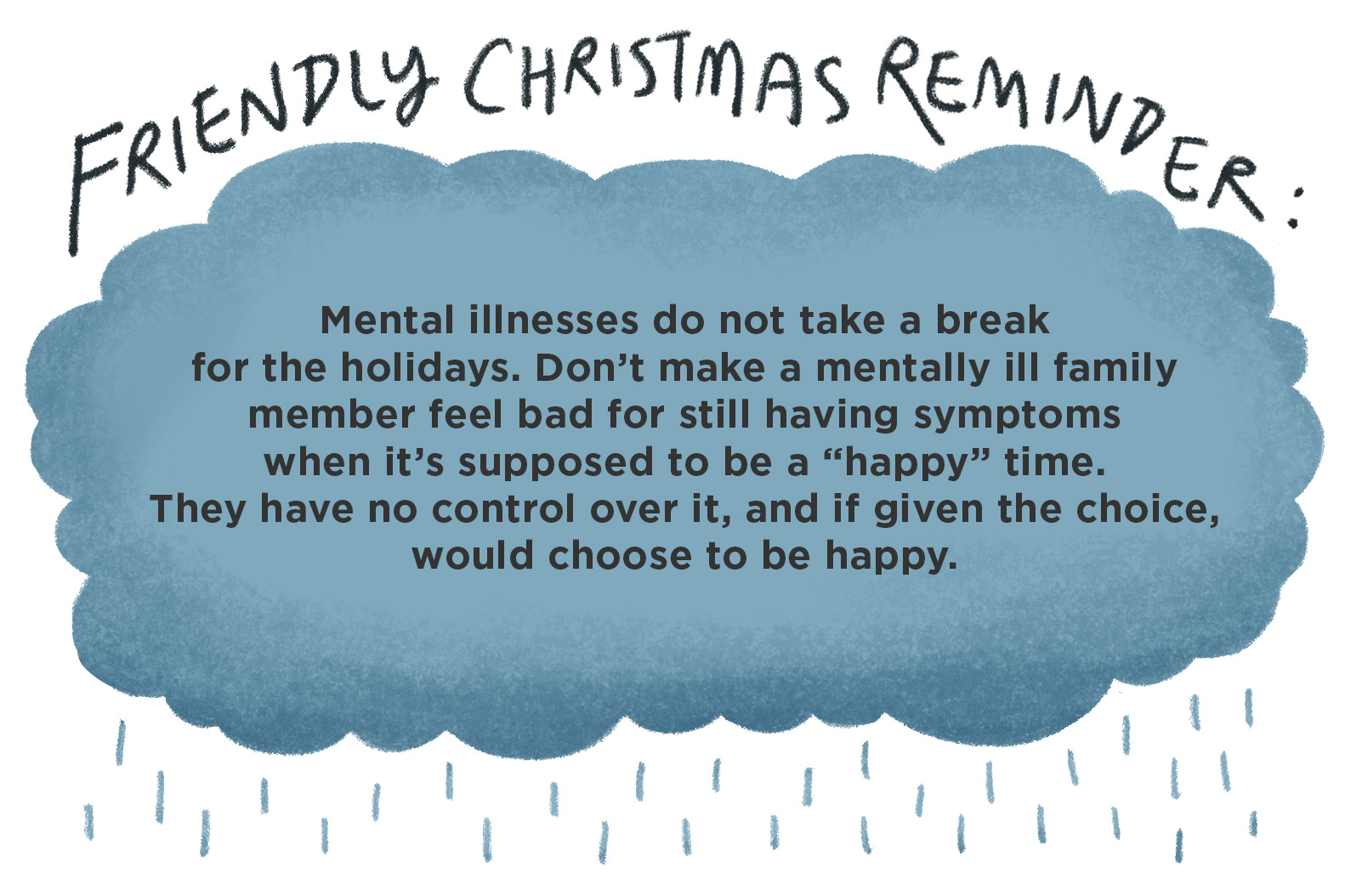
A few months ago, I attended a church conference on mental health where a pastor singled out two examples from Scripture of great men who battled with feelings of despair.
“I cannot carry all these people by myself; the burden is too heavy for me. If this is how you are going to treat me, please go ahead and kill me – if I have found favour in your eyes – and do not let me face my own ruin.” (Numbers 11:14)
During the long journey to the Promised Land, Moses was weary from the burden of leadership and ministry. If Moses lived in Singapore today, his words would probably sound like this: I cannot already. Just kill me now.
Moses was a man of faith – but a man who struggled, just like us.
The apostle Paul was also extremely honest about the sufferings he experienced during his missionary journey when writing to the church in Corinth. The hardships weighed so heavily on Paul that he was tired of life itself.
“We do not want you to be uninformed, brothers and sisters, about the troubles we experienced in the province of Asia. We were under great pressure, far beyond our ability to endure, so that we despaired of life itself.” (2 Corinthians 1:8)
In other words: I’m very stressed, I feel like dying.
The lives of Moses and Paul reflect our humanity, but they also point to a God that saves.
Both Moses and Paul were upfront about their mental and emotional distress, but none of us think of them as any less. In fact, these saints of old showed us that it’s okay to cry out to God and to admit our weaknesses to others.
Here are two lessons that I’ve learnt after revisiting their stories and seeing how God answered these despairing believers.
- We need Christ.
- We need community.
The lives of Moses and Paul reflect our humanity, but they also point to a God that saves.
WE NEED CHRIST
In Paul’s situation, God was a deliverer who helped him to overcome his affliction. This happened so that “we might not rely on ourselves but on God, who raises the dead”, says Paul (2 Corinthians 1:9-10).
If our weaknesses reveal anything, it’s our need for a Saviour and the power of Christ being demonstrated in us (2 Corinthians 12:9).
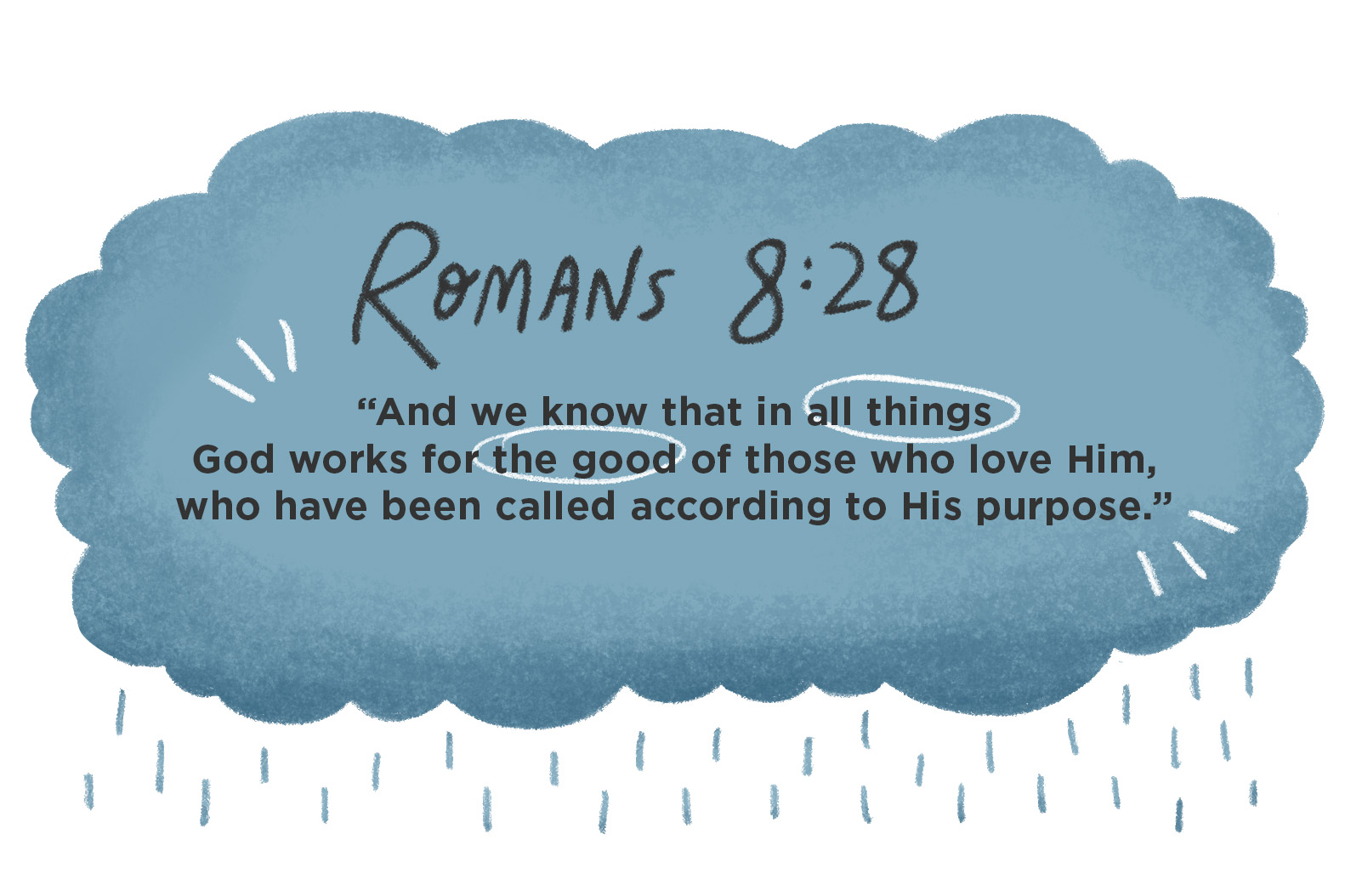
Romans 8:28 is a verse that gets thrown around a lot to comfort those who are suffering. But how many of us actually know that “the good” does not mean a favourable outcome or an eventual success, but being conformed to the image of His Son, our Lord Jesus Christ (Romans 8:29)?
We can be sure that, as Christians, we’re not immune to the difficulties and heartaches of this world. But God has not left us alone – He’s working behind the scenes and these trials are the training ground for perseverance (James 1:2-3).
Interestingly, if you rearrange the letters in “depression”, you’ll get “I pressed on”.
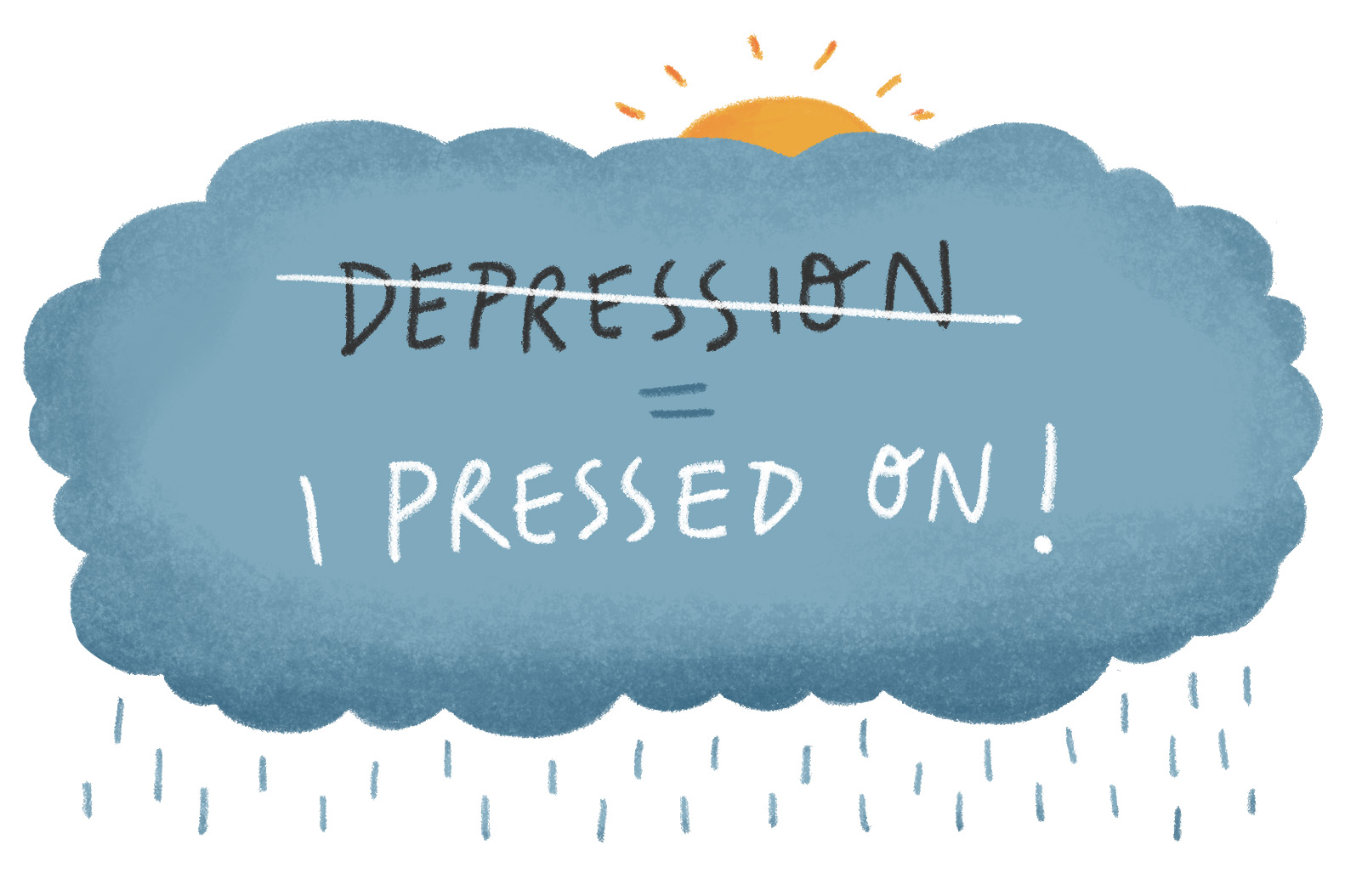
In James 1, the Greek word for testing (dokimion) is associated with the extreme heating process that precious metals are put through to remove impurities. The goal is for them to become so pure so that the refiner can see his own reflection in it.
If 2019 hasn’t turned out as we had hoped or is ending on a bad note, take heart that the intense fire of God’s purifying work is helping us to reflect His nature more. Let’s not miss what God is doing in our lives – take time to remember the goodness of God and give thanks.
That might actually be the change in perspective that we need.
WE NEED COMMUNITY
The other lesson is this: Our burdens are not meant to be borne alone.
After hearing Moses’ lament, God appointed 70 of Israel’s elders to share the burden together with Moses, so that he would not have to “carry it alone” (Numbers 11:16-17).
When we’re not feeling okay, it may seem intuitive to retreat into our shell of shame, but we don’t have to journey on our own. Revealing vulnerabilities in our trusted circle can help us to gain new insights on our struggles and build us up again.
We also shouldn’t be afraid of reaching out for professional expertise if we’re feeling trapped in depression. As with all sicknesses, the presence of mental illness just shows that we live in a fallen world – it’s not necessarily a sign of personal sin, but that we have all sinned.
For those of us who know someone who’s having a tough time, let’s not be quick to ask them to get over it.
Instead, create a safe space for others to bring their pain and seek healing for their wounds. Be a community of hope.
Indeed, when loved ones are near, even the hurting can say it’s the most wonderful time of the year.


